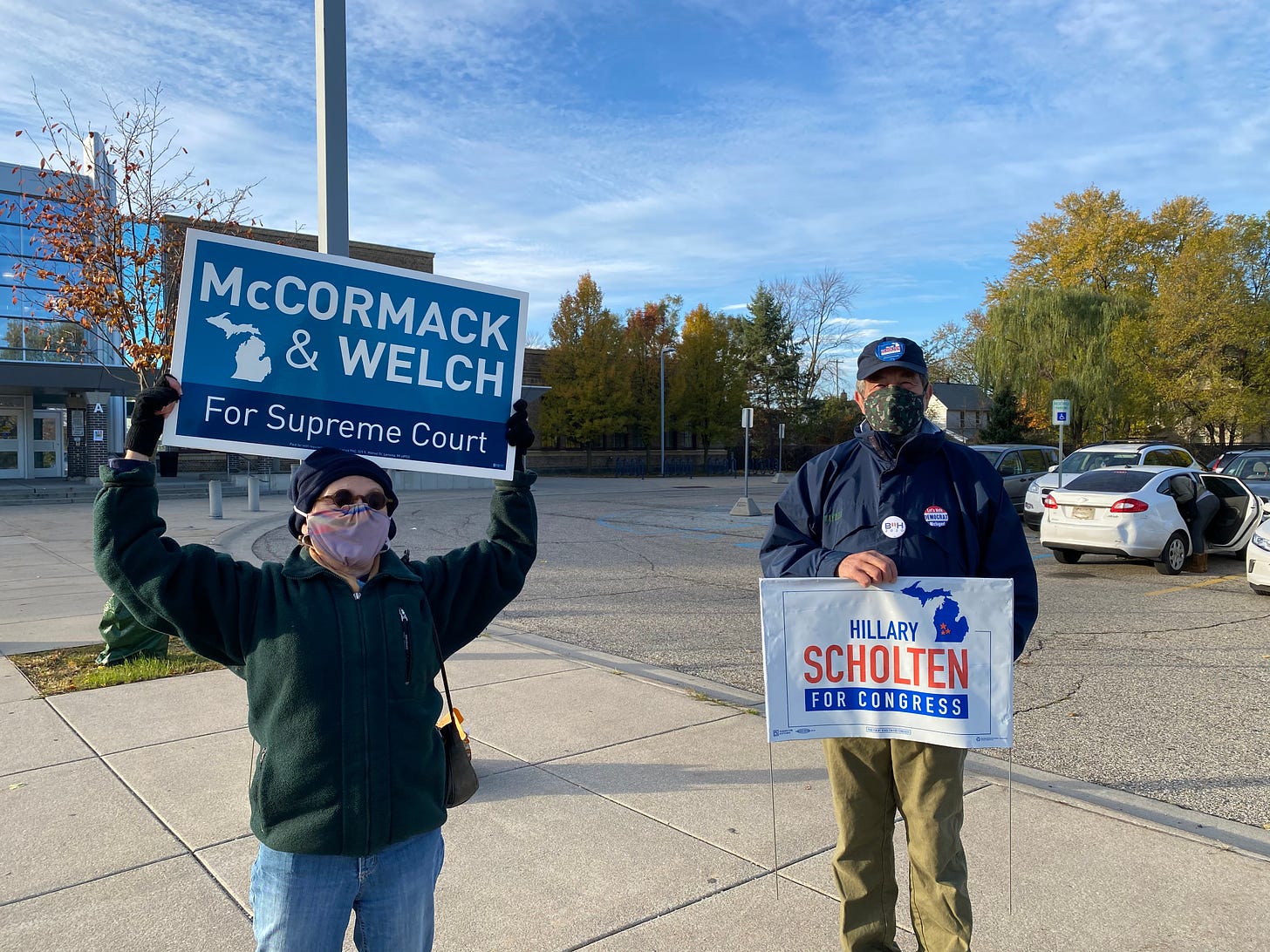We all knew it was coming, and now it is here.
There is no other way to describe what President Donald Trump did in the wee hours of the morning.

We all knew it was coming, and now it is here.
An attempted coup.
There is no other way to describe what President Donald Trump did in the wee hours of the morning.
Standing in the East Room of the White House, the room where Franklin Delano Roosevelt and John F. Kennedy lay in state, he stood and uttered six words that constituted an unprecedented assault on the integrity of our electoral system and the guts of our democracy.
“Frankly, we did win this election,” he said.
As is frequently, if not always, the case with Trump, he accompanied this continued move toward authoritarianism with lies about widespread voter fraud that he will go to the Supreme Court to stop.
Although one might think that we have lost our capacity to be shocked after five years of this kind of behavior, this brazen attack on the more than 240 years of our democracy was striking for multiple reasons.
The first was its utter predictability.
Trump and his allies like Attorney General William Barr have been sowing doubt on the electoral process for months.
He has repeatedly declined to say he would accept defeat because it would by definition mean that the election had been rigged.
The second, and perhaps even more disturbing, is the nation’s diminished capacity for outrage.
On one level, this may not be surprising.
The ceaseless lies and ongoing attack on the fabric of our democracy have become so routine that it can be hard to feel the latest one on a visceral level.
I would argue, though, that, while understandable, this by itself is a profound cause for concern.
The third is the comprehensive silence on the part of Republican leaders in the face of Trump’s actions.
As we saw during the impeachment proceedings, the Republican Party has long since given over to any semblance of independent thought or action.
Utah Senator Mitt Romney was the sole Republican to vote in favor of Trump’s conviction on abuse of power charges.
Citing the challenges of COVID and what they called outrageous media misrepresentation, the Republican National Committee made reasserting “the Party’s strong support for President Donald Trump and his Administration” one of the central planks of the platform it highlighted at its August convention.
The same muted response was evident last night after Trump’s victory declaration.
Sure, commentators like longtime Republican presidential ombudsman Benjamin Ginsberg and former New Jersey Gov. Christie offered critical comments on television, asserting that all votes must be counted.
But Senate Majority Leader Mitch McConnell, who used his victory speech to warn Democrats against pursuing “radical change,” was silent.
So, too, was House Minority Leader Kevin McCarthy.
The fourth, and perhaps most important, is that Trump’s action reminds and reinforce perhaps his presidency’s central lesson: the future of our democracy lies with all of us.
We the people.
Democrats and Republicans.
Old, middle-aged and young.
Black, white, Latino, Asian and Native American.
Men, women and nonbinary folks.
Gay, straight, bisexual, and questioning.
Able-bodied and disabled.
We must insist not only that each vote be counted, but that the results be honored.
We must label plainly what is happening and speak out against it.
And we must fight in this moment for the integrity of our form of government, as countless others have done before us in the more than two centuries since our democratic experiment began.
The counting continues.
The fate and future health of our democracy, even after record levels of turnout in some states, is uncertain.
The responsibility for our fate remains with us.
Jeff Kelly Lowenstein is the Padnos/Sarosik Endowed Professor for Civil Discourse at Grand Valley State University.



